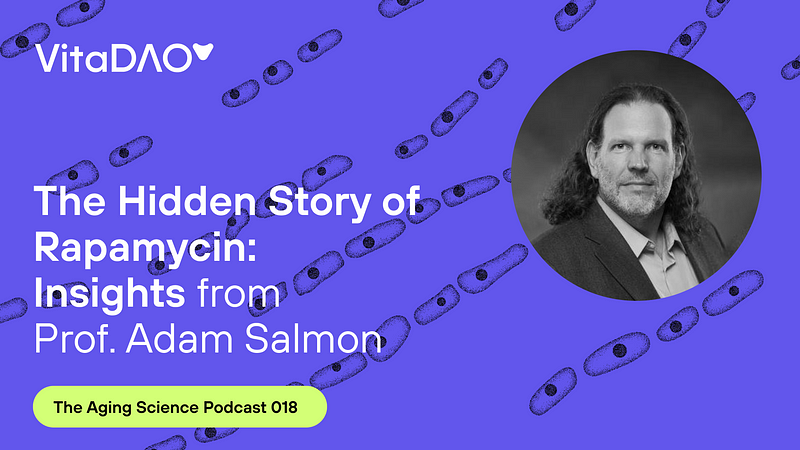Adam Salmon is getting popular suddenly, as he should be. The longevity outcomes data on rapamycin just keeps getting better! Here is another new interview with Adam brought to us by the Aging Science Podcast of VitaDoa.
Kamil Pabis, a postgraduate student at the National University of Singapore Center for Healthy Longevity, has this to say about his new podcast:
… we discuss the as-of-yet unpublished rapamycin data in marmosets which makes me very optimistic about this longevity drug.
Meet the man who secretly ran the most important rapamycin study you [have almost] never heard of. In this episode of the Aging Science Podcast I interviewed Prof. Adam Salmon. We talked about AMPK, caloric restriction (CR) mimetics and multistress resistance in aging. We also talked about the promise and disappointment with invertebrate models of aging. In the last part of the podcast we discussed the preliminary findings of a marmoset study that is testing whether rapamycin can extend the lifespan of a primate. This is definitely one of the most important ongoing studies in biogerontology. Check out the podcast to learn more.
Short Bio — Prof. Adam Salmon
Adam is a Professor with Tenure in the Barshop Institute and Department of Molecular Medicine at University of Texas Health San Antonio (UTHSA) with a joint appointment as Research Health Scientist in the Southwest Texas Veterans Health Care System. He is also a deputy director for the Interventions Testing Program.
Marmosets ARE a good model of aging
These primates are much longer lived than rodents at an average lifespan of 8–10 years yet not much larger than rats. They die of a much wider range of disease than mice do. Also in contrast to mice they do not constantly graze and are hence less likely to get obese.
Some 10 years ago Adam and colleagues started a study in marmosets to test whether rapamycin will extend their lifespan. The study randomized 66 marmosets and is powered to detect a lifespan difference of 10 to 15%.
Some people have asked why the study uses such a high dose of rapamycin and in response Adam points out that the study was designed before low dose and intermittent rapamycin regimes existed. This explains a lot. As for the choice of animal model? He decided to use marmosets instead of other primates because he could partner with other researchers who already had a large marmoset colony. Setting up a colony by yourself would be prohibitive.
Either way, there is no perfect small primate model. Rhesus monkeys are well studied but too long-lived and expensive. Now this knowledge gap is closing as more people turn towards small primate models like marmosets or mouse lemurs.
No evidence of immunosuppression, lipid and glucose abnormalities even though mTOR signaling was clearly suppressed in these primates. Kidney disease was improved but not epigenetic aging (Horvath et al. 2021) judged by a marmoset clock co-developed with Steve Horvath.
If rapamycin works in marmosets this would be groundbreaking. Check out the podcast for more details and discussion of survival data!
Listen to the full interview at link below:
The discussion about the marmoset rapamycin study begins at the 55 minute mark:
